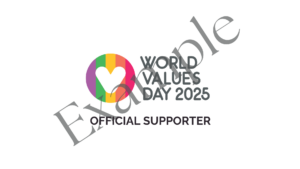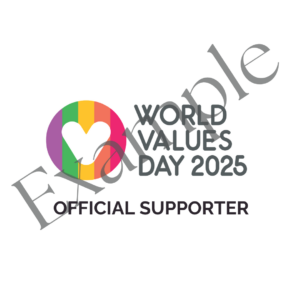By Jackie Le Fèvre & Alan Williams
Is there such a thing as too much advice?
Google “Resilience at Work” and see what you think. We got 63,900,000 results in 0.41 seconds including some really interesting things like Seven Things Resilient Employees Do Differently from Psychology Today and 5 Ways to Boost Your Resilience at Work from Harvard Business Review as well as things about resilience work in textile manufacture to make things strong and less likely to fray and how mulching your garden can make it resilient in drought conditions.
Clearly it is all out there – so perhaps the biggest challenge is finding a manageable piece of actionable insight. Our best hope is that you will find our post helpful and that it might inspire you to think and/or act differently in some small way.
Let’s start with a definitional step.
Oxford Living Dictionaries says resilience is “the capacity to recover quickly from difficulties; toughness” or “The ability of a substance or object to spring back into shape; elasticity.” That’s great for materials and while some of that applies to us as human beings, we are somewhat more complicated.
From modern neuroscience we now know that resilience is not a ‘trait’ so it is not something that some of us have and others do not. Rather, it is a dynamic state which sometimes we find ourselves in and sometimes we do not. What that means is that we can practice ways of thinking and actions that make the maintaining of a resilient state more likely. To understand resilience this way, here is a great definition from Kathryn McEwan of Working With Resilience
Personal Work Resilience: The capacity to manage the everyday stress of work while staying healthy, adapting and learning from setbacks and preparing for future challenges pro-actively.
And Edith Grotberg takes it one step further in her book Resilience for Today: “A resilient response to adversity engages the whole person, not just aspects of the person in order to face, endure, overcome and possibly be transformed”. So, not only is resilience about being life ready rather than bouncing back, but it is also about returning to a different place, where you are possibly better equipped than before.
Life can be hard, very hard and it can be wonderful Things can go wrong and they can go better than expected. Not everything works out and sometimes we make good things happen.
For the last twenty five years or so there has been a growing interest in Acceptance and Commitment Therapy (ACT). It is an approach to seeking a fulfilling life that basically accepts that things can be tough and not the way we want them to be but then moves to saying so what can be done to get closer to living the values that really matter. ACT is at least as effective as more conventional cognitive behavioural approaches and often works for people for whom CBT does not.
The role of values
Our values serve as our individual sense making architecture. Through the lens of our highest priority personal values when we look at a situation, hear something said or feel a sudden rush of sensation, we form a thought of what that means for someone ‘like me’. If you love speaking in public and your colleague doesn’t, you can both receive the same invitation “Please come and speak at our event” and respond completely differently. You (“Wow, how exciting. I’d love to”) do not need much in the way of resilience to respond while your colleague (“Oh no. I hate doing this.”) will need far more.
Our personal values shape our experience of the world.
What research has shown is that when we are consciously connected with our most important, heartfelt values that this can buffer us from physiological stress. Literally, conscious awareness of our values can stop our brain from producing overwhelming amounts of cortisol: the hormone which, when produced under pressure, stops us being able to think clearly.
Being able to think clearly is key to the first step in Kathryn McEwan’s definition of resilience as it is part of ‘the capacity to manage’. A compelling argument for having a deep grasp of your personal values. There is a choice of tools around that can help you do that – we are big fans of the Minessence Values Framework.
The second step is frequently doing those things that keep us healthy and help us learn from and adapt in the light of experience. When we choose to make decisions and do things which align with our highest priority values, we are more likely to do them willingly, and gain a sense of satisfaction – even happiness. For this step, an approach like my31Practices is very powerful. Working with five of your highest priority values, this tool helps you translate the values into practical behaviour and then consciously focus on one practice every day. Over time, it becomes natural and, by definition, you are living your values. This is part of “staying healthy” and “preparing for future challenges pro-actively”.
Do you want to be able to get into your own personal state of resilience more often?
Consciously connect with your values and then put them in to practice.
In the month in which we celebrate World Values Day, there’s no better time to start than the present………
Five fantastic TED talks which feed in to this topic
Carol Dweck on The power of believing you can improve
Susan David on The gift and power of emotional courage
Kelly McGonigal on How to make stress your friend
Angela Duckworth on Grit: The power of passion and perseverance
Ruth Chang on How to make hard choices
About the authors:
Jackie Le Fèvre Founder & Director, Magma Effect
Harnessing insights from one of the world’s leading values profiling technologies, Jackie works with organisations in every sector to strengthen meaning and motivation. As National Living Values Advisor to Wellbeing Teams she has played a key role in the development of a radical new approach to social care which has (so far) won two awards for its values-based recruitment in 2018 (currently shortlisted for two more). Jackie was a founder member of the Minessence International Cooperative, has served as Chair since October 2017, and represents the Coop within the UK Values Alliance and Global Values Alliance. A Fellow of the Chartered Management Institute, Jackie contributes to the CMI Subject Matter Experts Group concentrating on values and culture.
L: https://www.linkedin.com/in/jackie-le-f%C3%A8vre/
T: @MagmaEffect
M: 07886922438
Alan Williams Founder & MD, SERVICEBRAND GLOBAL
Alan coaches service sector organisations, internationally and in the UK, to deliver values-driven service for sustained performance. He is a published author and international speaker whose projects have delivered measurable business impact across a balanced scorecard and been recognised with industry awards. Alan’s co-authored books “THE 31 PRACTICES: release the power of your organisation’s VALUES every day” and “My 31 Practices: release the power of your values for authentic happiness” have received critical acclaim internationally. He is a Steering Group member of the UK Values Alliance and Founder of the Global Values Alliance.
W: www.servicebrandglobal.com www.my31Practices.com
E: alan@servicebrandglobal.com
L: www.linkedin.com/in/alanservicebrandglobal/
T: @OurSERVICEBRAND
M: 07875200666







